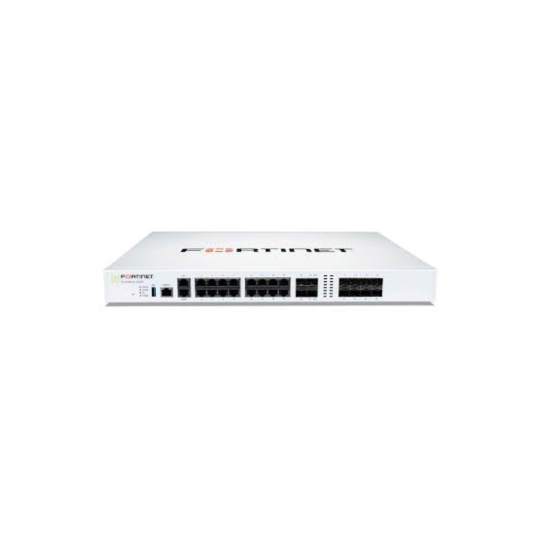In an era where digital threats are ever-evolving, small businesses face unique challenges regarding cybersecurity. With limited resources and a growing reliance on technology, safeguarding sensitive data is more critical than ever. One of the most effective ways to protect your small business is by implementing a firewall. This article delves into the importance of network firewalls and how they contribute to the overall security of your business.
1. Understanding Network Firewalls
A Firewall security acts as a barrier between your internal network and external sources, such as the internet. It monitors incoming and outgoing traffic based on predetermined security rules, allowing or blocking data packets based on these guidelines. Firewalls can be hardware-based, software-based, or a combination of both, making them adaptable to various business needs.
2. Why Small Businesses Are Targeted
Small businesses often underestimate their cybersecurity needs, making them attractive targets for cybercriminals. Here are a few reasons why:
- Limited Security Resources: Many small businesses lack dedicated IT staff or robust security infrastructure, making them vulnerable to attacks.
- Valuable Data: Small businesses often hold sensitive customer information, financial records, and proprietary data that can be lucrative for attackers.
- Underestimating Threats: A common misconception is that only large corporations are targeted. However, cybercriminals are increasingly focusing on smaller entities due to their perceived weaknesses.
3. The Role of Firewalls in Small Business Security
Network firewall are a fundamental component of any small business’s cybersecurity strategy. They provide a first line of defense by:
- Filtering Traffic: Firewalls analyze incoming and outgoing traffic to ensure only legitimate data can enter your network. This minimizes the risk of malware and unauthorized access.
- Preventing Data Breaches: By blocking suspicious traffic, firewalls help protect sensitive information from being stolen or compromised.
- Enforcing Security Policies: Firewalls allow businesses to implement specific security policies tailored to their needs, ensuring that employees can only access appropriate resources.
4. Types of Firewalls for Small Businesses
When considering a firewall for your small business, it’s essential to understand the different types available:
- Hardware Firewalls: These are physical devices placed between your network and the internet. They provide a robust layer of security and are suitable for businesses with multiple devices.
- Software Firewalls: Installed on individual devices, software firewalls monitor traffic for that specific machine. They are ideal for remote workers or small teams using personal devices.
- Unified Threat Management (UTM): UTM devices combine multiple security features, including firewalls, intrusion detection, and antivirus, into a single solution. They offer comprehensive protection for small businesses.
5. Essential Features to Look for in a Firewall
Not all Sophos firewall are created equal. Here are key features to consider when selecting a firewall for your small business:
- Traffic Monitoring and Reporting: The ability to monitor traffic in real-time and generate reports is crucial for identifying potential threats and understanding network usage.
- Intrusion Detection and Prevention: Firewalls that include intrusion detection systems (IDS) can identify and respond to suspicious activities in real-time, adding an extra layer of security.
- User Access Controls: Implementing user access controls ensures that employees have access only to the resources they need, reducing the risk of accidental data exposure.
6. Implementing a Firewall Strategy
Establishing an effective firewall strategy involves several steps:
- Assess Your Needs: Evaluate your business’s unique requirements, including the number of devices, types of data processed, and regulatory compliance needs.
- Choose the Right Firewall: Based on your assessment, select a firewall type that meets your security needs and budget constraints.
- Regularly Update and Maintain: Firewalls require regular updates to ensure they are equipped to handle the latest threats. Schedule routine maintenance checks and policy reviews.
7. Integrating Firewalls with Other Security Measures
Firewalls are most effective when combined with other security solutions. Consider integrating:
- Antivirus Software: While firewalls block unauthorized access, antivirus software can detect and remove malware that may already be on your network.
- Virtual Private Networks (VPNs): VPNs encrypt data transmitted over the internet, providing secure remote access for employees working from home or on the go.
- Backup Solutions: Regularly backing up data ensures that, in the event of a breach, you can quickly restore operations without significant loss.
8. Training Employees on Cybersecurity Practices
Your firewall can only do so much. Employee training is essential for maintaining a secure environment. Consider the following:
- Phishing Awareness: Teach employees to recognize phishing emails and suspicious links that could compromise the network.
- Password Management: Encourage the use of strong, unique passwords and regular updates to mitigate unauthorized access.
- Regular Security Assessments: Conduct periodic training sessions and security drills to keep cybersecurity top-of-mind for your employees.
9. The Cost of Not Having a Firewall
The consequences of inadequate cybersecurity can be dire. Small businesses that experience a data breach may face:
- Financial Losses: The average cost of a data breach can be substantial, affecting not just immediate profits but also long-term customer trust.
- Reputation Damage: Customers may be hesitant to do business with a company that has experienced a breach, leading to a loss of clientele and future business opportunities.
- Legal Consequences: Depending on the nature of the breach, businesses may face legal ramifications, including fines and penalties.
10. Conclusion
In today’s digital landscape, a robust network firewall is essential for small business protection. By filtering traffic, preventing data breaches, and enforcing security policies, firewalls provide a crucial layer of defense against cyber threats. As the risks continue to grow, investing in a reliable firewall system is not just advisable; it’s necessary for the long-term security and success of your business.












